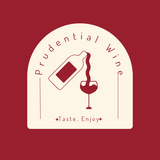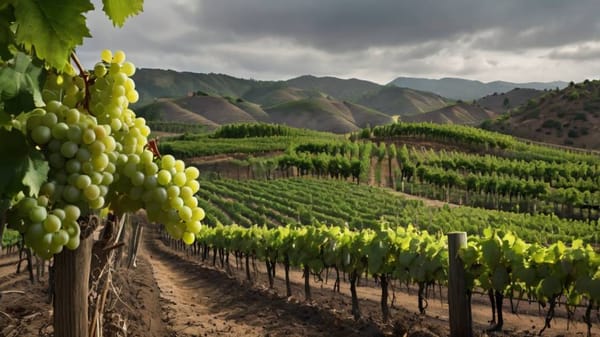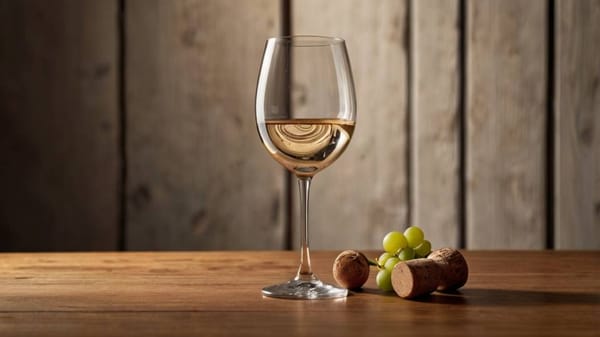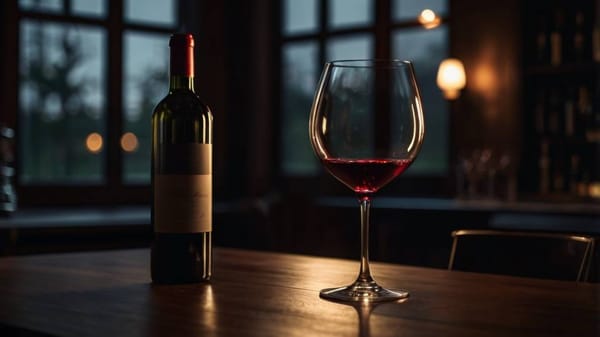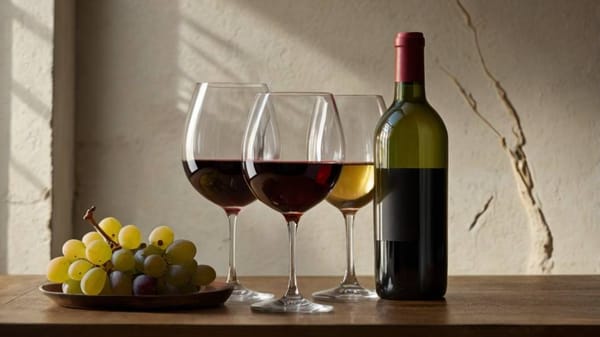Why You Don’t Need Fancy Gadgets to Enjoy Wine
Skip the gadgets—real wine enjoyment starts with your senses. Learn how to taste with focus, build confidence, and trust your own palate.
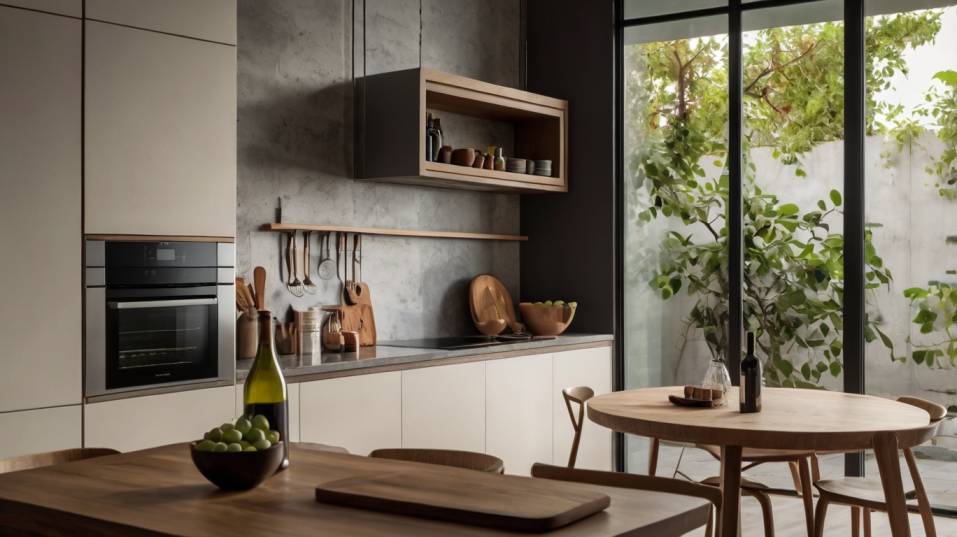
Do you really need high-end tools to enjoy wine—or just a better way to pay attention? For those starting their wine journey, the answer might surprise you.
The best gear you can bring to the table isn’t a fancy decanter or smart thermometer. It’s curiosity.
Your senses, not your gadgets, are what unlock great wine moments. Learn to trust them, and you’ll enjoy more with less—no wine fridge required.
What You Really Need to Enjoy Wine
Let’s be honest—wine has a reputation for being high-maintenance. Walk into any upscale wine shop or scroll through a sommelier’s recommendations online, and you’re met with an endless parade of accessories.
Aerators that promise perfect oxidation. Weighted, ultra-specific corkscrews. Glasses tailored to every grape. Temperature-controlled decanters. It’s overwhelming—and mostly unnecessary.
At its core, wine is simple: it’s fermented grape juice shaped by place, weather, and time. That’s where its complexity comes from—not from gear.
The most important “tools” for enjoying wine are the ones you already have: your nose, your palate, and your attention span. Use them well, and you’ll understand more from one glass than any digital accessory can teach you in a year.
What’s useful? A glass that lets you smell and swirl, with a bowl wide enough to capture the aroma. It doesn’t have to be crystal, and it certainly doesn’t have to be expensive.
A clean, sharp corkscrew—one that cuts the foil and pulls the cork without a fuss—is plenty. That’s your real foundation.
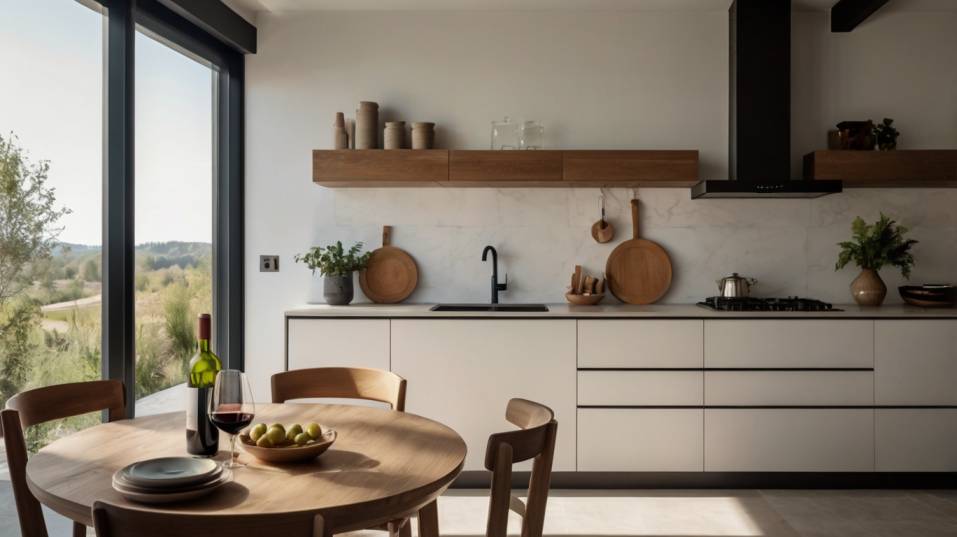
Technique Beats Technology
Many beginners assume better results come from better tools. But wine rewards technique, not tech.
You can learn more about a wine by giving it a few quiet minutes in your glass than by feeding it through an aerator. You can get the temperature right through feel and practice—not a digital readout.
Temperature and Timing
If a red wine tastes too sharp or hot, chill it slightly. Ten minutes in the fridge will soften the alcohol and highlight the fruit. If a white wine feels muted, let it warm up a little.
Flavor expands with temperature, and you’ll taste more texture and nuance as the chill fades. These aren’t tricks—they’re habits. And they cost nothing.
Air and Patience
The same goes for decanting. Sure, it helps some wines—especially younger reds with tight tannins or sediment-heavy older bottles—but you don’t need a hand-blown decanter.
A water pitcher works. Even just letting the wine sit in your glass can make a difference. Time and air are free.
Tasting With Intent
This is where real progress happens. When you stop drinking wine as background noise and start tasting it on purpose.
Forget memorizing tasting notes or chasing “correct” vocabulary. Instead, focus on what the wine is doing. How does it feel in your mouth? Is it crisp, soft, drying, juicy?
Where do you feel it—on your cheeks, your tongue, the roof of your mouth? These questions sharpen your palate faster than any app or smart tool ever could.
Look for balance: is the fruit balanced by acidity? Do the tannins feel grippy or smooth? Is there a finish—does the flavor hang on, or disappear right away?
Asking these questions every time you drink will give you a deeper understanding of wine styles, regions, and your own preferences.
You’re not trying to become a critic. You’re learning how to listen to wine. That’s what builds confidence—and with confidence, your choices get better, your pairings get smarter, and your enjoyment becomes more consistent.
The Illusion of Prestige
There’s an unspoken pressure in wine culture: the idea that to “get it right,” you need the right bottle, the right glass, the right decanter, the right cellar.
But this mindset distracts from what matters. Wine isn’t about perfection. It’s about experience.
You don’t need to perform your wine interest to be taken seriously. You don’t need to post polished photos of your glassware or show off your wine fridge.
In fact, some of the most meaningful wine moments happen in casual settings—at the kitchen table, with a meal that wasn’t planned to pair. What makes them special is the attention you give them, not the accessories that surround them.
Yes, professionals use tools. Yes, they can be helpful in specific situations. But for most people, most of the time, they’re a distraction.
Focus on the liquid in the glass. Learn how to taste more thoughtfully. Recognize what you love. That’s how wine becomes personal—and that’s what makes it unforgettable.
Building Your Ritual
Instead of investing in gadgets, invest in your ritual. Make space for wine to be something more than a pour-and-forget habit. Start by choosing bottles that interest you, not ones that intimidate you.
Ask yourself why you’re drawn to a certain style—do you love freshness? Richness? Earthiness? Start connecting those dots.
Pour slowly. Give the wine time to unfold. Swirl it, smell it, and taste it in stages. See how it evolves over 30 minutes. Try it with and without food.
Try it on a quiet night, or when you're cooking something simple. These little choices shape your palate more than any filter or device ever could.
The more consistent you are with your practice, the more grounded your understanding becomes. You won’t need someone else’s tasting notes—you’ll know what you’re tasting.
You won’t rely on reviews—you’ll trust your experience. And that’s where real wine confidence lives.
Final Thoughts
You don’t need a wine lab in your kitchen to drink well. What you need is a better relationship with the wine itself. Learn to use your senses. Learn to slow down.
Let technique, not tools, shape your understanding. Because in the end, it’s not the gadgets that make wine memorable—it’s your presence at the table.
So here’s your next step: open a bottle you haven’t tried before. Use the tools you already have. Pour a little. Taste it slowly. Notice something you didn’t last time. That’s how you grow your palate—and that’s the kind of wine knowledge that lasts.
